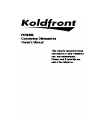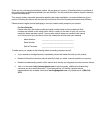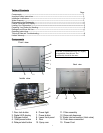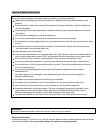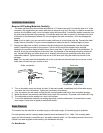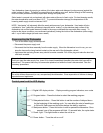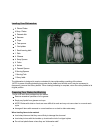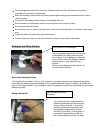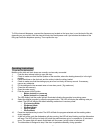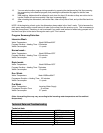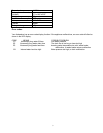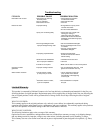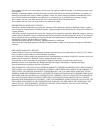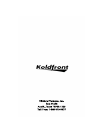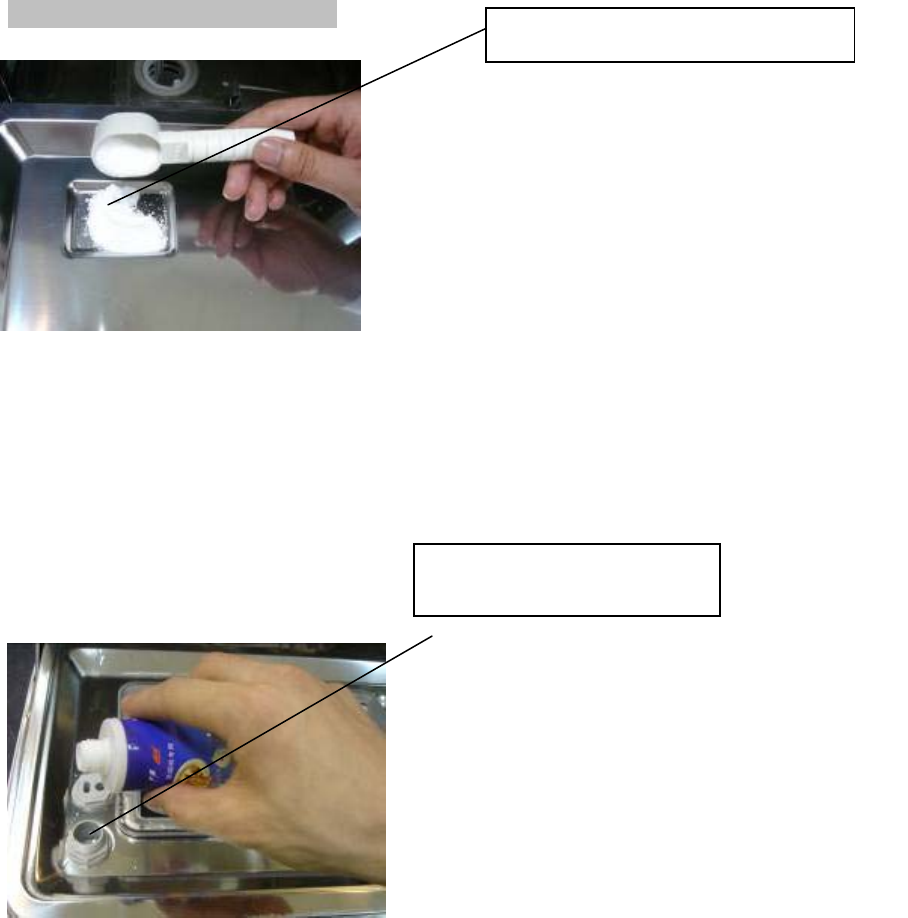
6
ൺ
Do not load glasses over the dish rack pins. Glasses loaded over dish rack pins are not properly
supported and are likely to get damaged.
ൺ
Items with wooden or bone handles and items joined together with glue are unsuitable as they cannot
resist hot water.
ൺ
Do not touch the heating element during or immediately after use.
ൺ
Do not operate your dishwasher unless all enclosure panels are properly in place.
ൺ
Do not tamper with the controls.
ൺ
Do not abuse, sit on, or stand on the open door or dish-rack of the dishwasher. The machine may topple
over.
ൺ
Protect the cables and hoses from high temperatures.
ൺ
To reduce the risk of injury, do not allow children to operate or play with the dishwasher.
Detergent and Rinse Aid Use
How much detergent to use
That depends if your water is ‘hard’ or ‘soft’. Generally, hard water requires more detergent to get dishes
clean while soft water requires less detergent.The recessed detergent indention located on the inside door
panel will hold approximately 12g of detergent. Follow the detergent manufacturer’s guidelines for appropriate
detergent quantity.
Using a Rinse Aid
Use only detergent specifically made for use
in dishwashers, as other types can cause
over-sudsing. If your detergent is old and/or
lumpy, throw it away. Old detergent loses its
washing power. Lumpy detergent won’t
dissolve.
Please put the detergent in the indention on
the inner side of the door.
You can help prevent unsightly spots on
dishes and glassware and reduce drying
time by using a rinse aid. A rinse aid is
specially formulated to rinse away food
and detergent residue that can be left
behind on your dishes. Used regularly, a
rinse aid will automatically provide you
with cleaner dishes every time you wash.
Add the rinse aid into this
dispenser.
The indention for the detergent



